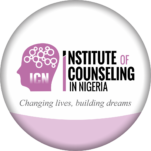It’s not unusual for children — especially those in their “terrible twos” and early teens — to defy authority every now and then. They may express their defiance by arguing, disobeying, or talking back to their parents, teachers, or other adults. When this behavior lasts longer than six months and is excessive compared to what is usual for the child’s age, it may mean that the child has a type of behavior disorder called oppositional defiant disorder (ODD).
ODD is a condition in which a child displays an ongoing pattern of an angry or irritable mood, defiant or argumentative behavior, and vindictiveness toward people in authority. The child’s behavior often disrupts the child’s normal daily activities, including activities within the family and at school.
Many children and teens with ODD also have other behavioral problems, such as attention deficit disorder, learning disabilities, mood disorders (such as depression), and anxiety disorders. Some children with ODD go on to develop a more serious behavior disorder called conduct disorder.
Estimates suggest that 2%-16% of children and teens have ODD. In younger children, ODD is more common in boys. In older children, it occurs about equally in boys and in girls. It typically begins by age 8.
Symptoms of Oppositional Defiant Disorder
Symptoms of ODD may include:
Throwing repeated temper tantrums
Excessively arguing with adults, especially those with authority
Actively refusing to comply with requests and rules
Deliberately trying to annoy or upset others, or being easily annoyed by others
Blaming others for your mistakes
Having frequent outbursts of anger and resentment
Being spiteful and seeking revenge
Swearing or using obscene language
Saying mean and hateful things when upset
In addition, many children with ODD are moody, easily frustrated, and have low self-esteem. They also sometimes may abuse drugs and alcohol.
Causes of Oppositional Defiant Disorder
The exact cause of ODD is not known, but it is believed that a combination of biological, genetic, and environmental factors may contribute to the condition.
Biological: Some studies suggest that defects in or injuries to certain areas of the brain can lead to serious behavioral problems in children. In addition, ODD has been linked to abnormal functioning of certain types of brain chemicals or neurotransmitters. Neurotransmitters help nerve cells in the brain communicate with each other. If these chemicals are not working properly, messages may not make it through the brain correctly, leading to symptoms of ODD, and other mental illnesses. Further, many children and teens with ODD also have other mental illnesses, such as ADHD, learning disorders, depression, or an anxiety disorder, which may contribute to their behavior problems.
Genetics: Many children and teens with ODD have close family members with mental illnesses, including mood disorders, anxiety disorders, and personality disorders. This suggests that a vulnerability to develop ODD may be inherited.
Environmental: Factors such as a dysfunctional family life, a family history of mental illnesses and/or substance abuse, and inconsistent discipline by parents may contribute to the development of behavior disorders.
Treatment
Treatment for ODD is determined based on many factors, including the child’s age, the severity of symptoms, and the child’s ability to participate in and tolerate specific therapies. Treatment usually consists of a combination of the following:
Psychotherapy : Psychotherapy (a type of counseling) is aimed at helping the child develop more effective coping and problem-solving skills, and ways to express and control anger. A type of therapy called cognitive-behavioral therapy aims to reshape the child’s thinking (cognition) to improve behavior. Family therapy may be used to help improve family interactions and communication among family members. A specialized therapy technique called parent management training (PMT) teaches parents ways to positively alter their child’s behavior. Behavior management plans also often involve developing contracts between parent and child that identify rewards for positive behaviors and consequences (punishments) for negative behaviors.
Medication: While there is no medication that is scientifically established or formally approved to treat ODD, drugs may sometimes be used to treat symptoms or other mental illnesses that may be present, such as ADHD or depression.
